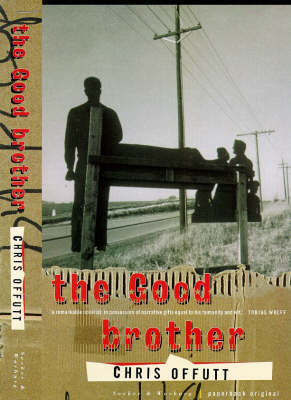Reviewed by jamiereadthis on
It sure doesn’t stack well story-wise against the man who, we’re told, must have the truth in him somewhere “because it ain’t never come out yet.” Whose former running buddies are, we’re told, “the incarcerated, the dead, and the recently religious.” The wild, dead Boyd is beloved, and best by those who wanted to kill him, and maybe it’s not fair to compare the promise of that story to the one we got, but it’s torture to have it lurking around the edges while Virgil swaps driver’s licenses or doesn’t get drunk or quietly weeps.
So, with the letdown of an ending this was somewhat of a bust. I’ve got a book of Offutt’s short stories, though, and I’m excited for it, because if the focus is on the strengths it should inherently solve some of the long-form problems here. Take for example Virgil meeting up with Orben near the end: while in context it’s a huge contrivance, trimmed down and on its own it’s a damn good story, and with that great, riffing dialogue, just the kind of thing I’d want to read.
One thing I did learn: no more Montana as the backup plan for me. It’s one gorgeous place and just the kind of wilderness I love but, comparing it like Virgil does to Kentucky, which is so close to home— I was getting so homesick I couldn’t stand it. The loss of fireflies, and barbecue, and Appalachian autumns, and the close, humid hills and dew and dusk, and the nosy, friendly, wild, tell-you-everything-in-a-minute people: I couldn’t take it, no sir. That’s home.
Reading updates
- Started reading
- 20 April, 2012: Finished reading
- 20 April, 2012: Reviewed
